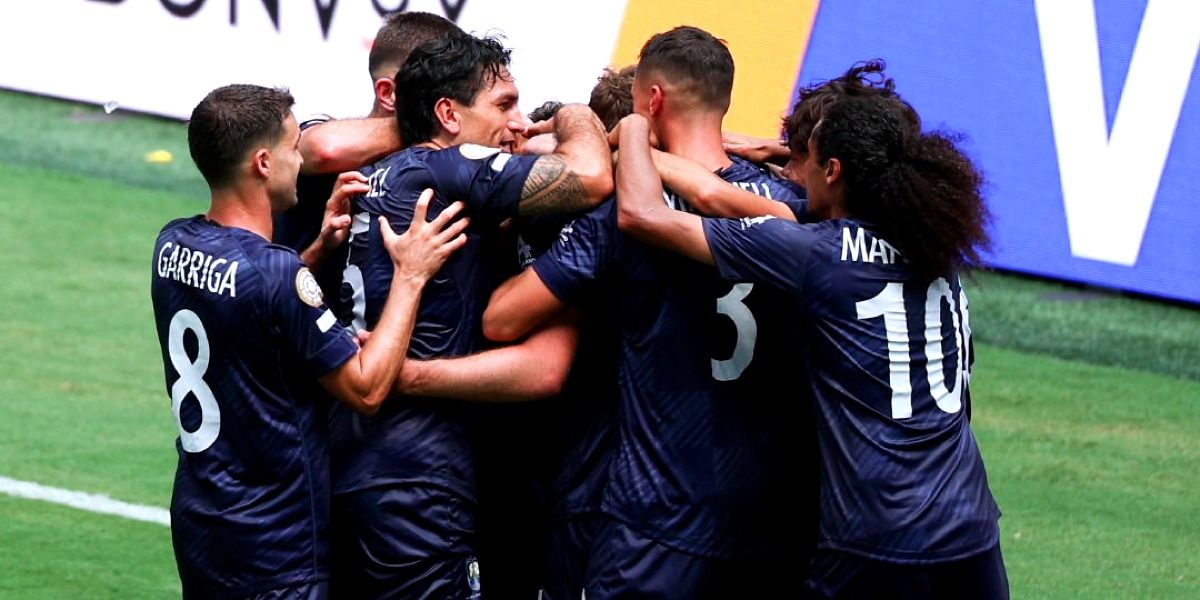Auckland City's Immortal Night: The Schoolteacher Who Silenced Boca in a Tennessee Storm

NASHVILLE, TN — Under brooding Southern skies, a team of teachers, electricians, and delivery drivers etched their names into football folklore. Auckland City—semi-professional dreamers from a nation of 5 million—battled South American titans Boca Juniors to a thunderous 1-1 draw, ending an eight-year Club World Cup losing streak in a rain-lashed fairy tale at Geodis Park.
The Own Goal That Set the Stage
Boca charged like bullies early, their desperation palpable. In the 26th minute, fate dealt Auckland cruelty: Nathan Garrow’s attempted save rebounded off his face into the net. The Kiwi keeper buried his head in the turf as Boca’s fans roared. "I wanted to disappear," Garrow admitted later. But Boca’s wastefulness haunted them—Advíncula’s curler kissing the post, Merentiel rattling the crossbar—letting Auckland survive.
The Miracle Moment
Then, seven minutes after halftime, magic:
- Jerson Lagos, a factory worker on weekdays, whipped a corner into Nashville’s humid air.
- Christian Gray, a high school math teacher who graded papers on the flight over, rose between Boca’s million-dollar defenders.
His header soared into the net. Pandemonium. Gray sprinted toward Auckland’s bench, glasses fogged, screaming into rain that felt like destiny. "I teach kids about angles," he gasped post-match. "Today, I lived one."
When the Heavens Intervened
Nature itself seemed to celebrate. Lightning split the sky, halting play for 50 minutes. In the tunnels:
- Boca’s stars sat stone-faced, waterlogged kits weighing 40 pounds.
- Auckland’s squad huddled like brothers, singing Maori hymns.
When play resumed, Boca thought they’d reclaimed glory—Merentiel’s strike rippling the net—until VAR spotted a handball. The air left Boca’s sails. Garrow, redeemed, made two late saves that felt like acts of defiance.
The Weight of the Result
For Boca, elimination was sealed hours earlier by Benfica’s win. Captain Advíncula kicked the post, his face etched with shame. For Auckland, this was immortality: their first-ever Club World Cup point after 8 straight losses. As fireworks exploded for both teams (a Nashville tradition), the Kiwis collapsed in a tearful pile.
Why This Resonates Beyond the Score
- Garrow’s Redemption: From own-goal villain to heroic saves.
- Gray’s Double Life: "Monday, I’ll teach geometry. Tonight, I solved football."
- Boca’s Broken Pride: 35-time Argentine champions held by a team whose budget wouldn’t cover their laundry bill.
Post-Match Vignettes:
Boca’s staffer shaking his head: "How do we explain this in Buenos Aires?"
Auckland’s coach embracing Garrow: "You carried us, son."
A Maori elder in the stands, face painted, whispering: "Our warriors came."
Legacy in the Rain
Auckland returns home with no trophy, no prize money—but something greater: proof that football’s soul lives in teachers who become titans, and in storms that can’t drown dreams. As Gray boarded the team bus, a Boca fan stopped him:
"Profesor... your goal was poetry."
For one night in Tennessee, the beautiful game was perfect.